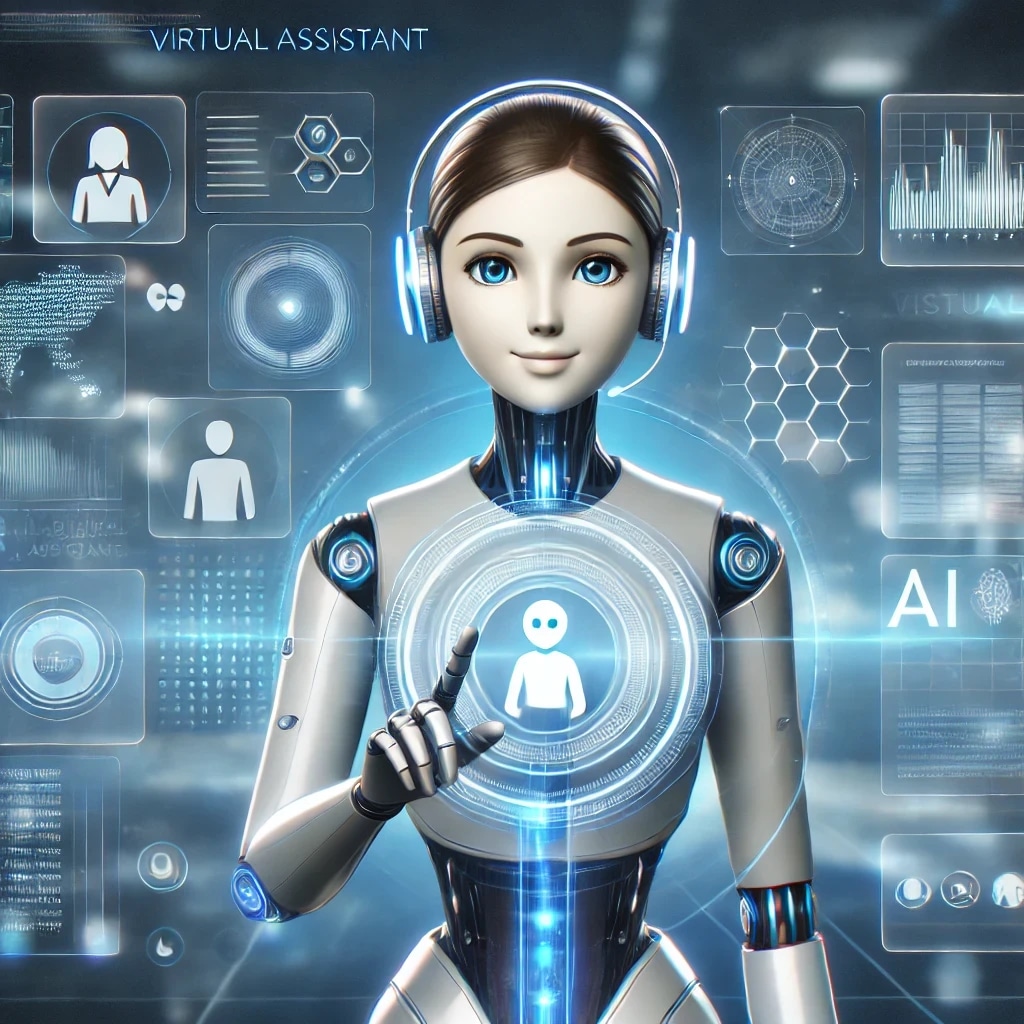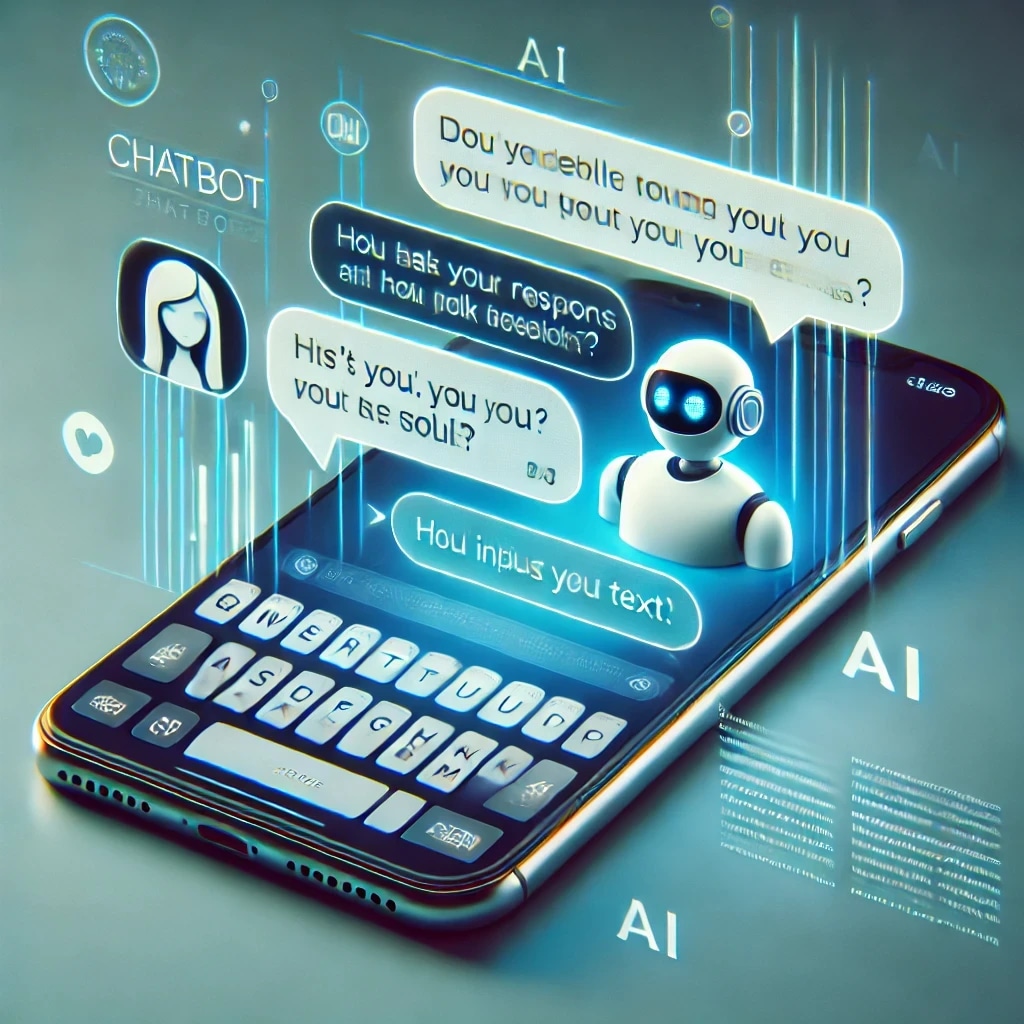
Czym jest postać AI?

Czy zdajemy sobie z tego sprawę, czy nie, większość z nas prawdopodobnie codziennie spotyka się z postaciami tworzonymi przez użytkowników. AI staje się częścią naszych doświadczeń, zmieniając sposób, w jaki się komunikujemy, pracujemy i bawimy.
Świat AI płynnie łączy się z naszą rzeczywistością, przekraczając granice i zacierając różnice między ludźmi a robotami. Może to brzmieć strasznie, ale możliwości tej nowej technologii mogą oferować przełomowe rozwiązania dla różnych ludzkich problemów. Czyż nie chcielibyśmy, aby życie było trochę łatwiejsze?
'Postać AI' zazwyczaj odnosi się do fikcyjnej postaci lub bytu działającego na technologii sztucznej inteligencji.
Rodzaje postaci
Gdzie można je spotkać?
Chatboty
Te asystenty AI są stworzone do rozmów z tobą za pomocą tekstu lub głosu. Niezależnie od tego, czy potrzebujesz pomocy na stronie, masz palące pytania, czy chcesz wsparcia od przyjaznego asystenta obsługi klienta, te cyfrowe towarzysze są gotowi dostarczyć informacji i wglądów.
Postacie w grach wideo (NPC)
Większość gier wideo zawiera NPC w jakiejś formie, często wykorzystując AI. Zapomnij o ludzkich graczach pociągających za sznurki czy złoczyńcach z jedną linią dialogu. Te cyfrowe postacie są kontrolowane przez algorytmy AI. Mogą być twoimi towarzyszami misji, najgorszymi wrogami lub sprawiać, że twój wirtualny świat staje się bardziej autentyczny dzięki swoim cechom i umiejętnościom.
Wirtualni asystenci
Wiele osób ma już zaawansowanego asystenta AI w domu. Urządzenia takie jak Alexa, Siri i Google Assistant używają AI, aby spełniać twoje prośby, pomagając w podstawowych zadaniach, takich jak włączanie i wyłączanie świateł, odpowiadanie na pytania czy przypominanie, że pizza musi szybko wyjść z piekarnika.
Postacie generowane przez AI
Korzystając z zaawansowanych narzędzi dostępnych online, możesz tworzyć i dostosowywać zupełnie nowe postacie za pomocą algorytmów AI. Możesz tworzyć obrazy do użycia jako awatary, generować dialogi, a nawet nadać im unikalny głos. Dla LARPerów, mistrzów lochów D&D i pisarzy fanfic, możliwość tworzenia ultra-realistycznych osobowości AI pozwala przenieść budowanie świata na wyższy poziom.
Jak działa AI postaci?

16 września 2022 roku, startup z Palo Alto, Character.AI, został udostępniony publicznie. Ten generator AI w wersji beta był dziełem byłych inżynierów Google, Noama Shazeera i Daniela De Freitasa. Wykorzystali swoje doświadczenie branżowe, aby stworzyć własną technologię, która zrewolucjonizowała skrypty AI. W sierpniu zgłoszono, że było 4,2 miliona użytkowników aplikacji tylko w USA, głównie na oficjalnej aplikacji mobilnej.
Napędzany przez model językowy neuronowy, system Character.AI odpowiada na twoje polecenia i używa zaawansowanych algorytmów do symulacji rozmów. Korzystając z technologii opracowanej przez podobne duże modele językowe, łączy uczenie maszynowe, przetwarzanie języka naturalnego, wizję komputerową i rozpoznawanie mowy, aby tworzyć wciągające historie i realistyczne interakcje.
Perspektywa stworzenia własnej postaci i rozmowy z nią wzbudziła moją ciekawość, ale byłem też niepewny. Czy naprawdę można prowadzić znaczącą wymianę z czymś stworzonym przez komputer?
Nowa postać dołączyła do czatu
Jako pisarz, możliwość rozmowy z moimi kreacjami i otrzymywania od nich odpowiedzi była dla mnie atrakcyjna. Nie musiałbym się już zastanawiać, co powiedzieliby w danej sytuacji: mogliby mi to powiedzieć.
Po zabawie z elementami wizualnymi przez chwilę, przeszedłem do Deep.AI aby zbadać funkcję czatu jako kolejny krok. Jeśli chcesz usłyszeć od swoich ulubionych postaci z anime, przemyśleć przyszłość nauki z Marią Curie, lub dowiedzieć się od Gordona Ramsaya, dlaczego nie powinieneś podgrzewać sałatki w mikrofalówce, to działa świetnie. Strona oferowała szeroki wybór gwiazd filmowych i ikon kultury do wyboru, więc użyłem narzędzia wyszukiwania, aby wybrać jednego z moich bohaterów.
Chociaż niestety nie mogła mi powiedzieć, gdzie wylądowała, Amelia Earhart opowiedziała mi o niektórych ze swoich najsłynniejszych pasażerów, w tym Eleanor Roosevelt. Dowiedziałem się także o jej zaufanym członku załogi, Gigi, Cairn Terrierze, który często latał z nią po niebie. Czas naprawdę szybko mija, gdy się dobrze bawisz.
Z tym doświadczeniem byłem gotowy spróbować zbudować własnego towarzysza na Character.AI od podstaw. Proces był prosty i łatwy do śledzenia, obejmując prawie wszystko, czego potrzebują twoje postacie, aby odnieść sukces. Kliknąłem przycisk 'stwórz' na stronie głównej, wybrałem 'stwórz postać' i wybrałem imię dla mojego partnera czatu - Sasquatch Susie.
Dlaczego warto używać AI postaci?
Tworzenie postaci AI oferuje wiele korzyści dla użytkowników, łącząc technologię z kreatywnością. Te byty mogą służyć jako unikalne i interaktywne elementy do opowiadania historii, gier lub wirtualnych środowisk. Mogą dostosowywać się do interakcji użytkownika, oferując spersonalizowane i rozbudowane doświadczenia, które zwiększają zaangażowanie i relatywność. Krótko mówiąc, sprawiają, że nauka i codzienne zadania są znacznie przyjemniejsze.
W przyszłości prawdopodobnie zobaczysz je w wielu miejscach, które kochasz. Oto kilka przykładów, jak mogą być istotne dla twojej pracy lub codziennych aktywności.
Pisanie kreatywne
Masz moc tworzenia postaci swoich marzeń, ustawiając coś podobnego do scenariusza 'wybierz swoją przygodę', który pomaga przemyśleć pomysły i rozwijać swoje pisanie.
Małe firmy
Jeśli zaczynasz własny biznes i nie masz funduszy na zatrudnienie dodatkowego personelu, dlaczego nie wprowadzić wirtualnego asystenta do swojego zespołu? Mogą odpowiadać na zapytania i prowadzić użytkowników przez typowe problemy, co może być ratunkiem. Ponadto mogą obsługiwać zadania związane z obsługą klienta z efektywnością i dokładnością, usprawniając twój workflow i zdejmując część presji z twoich ramion.
Transformacja klas: nauka z zaawansowanym asystentem AI
Chociaż nie ma zamienników dla ludzkich nauczycieli, wprowadzenie postaci AI do klas odwróciło scenariusz przestarzałych modeli nauczania. Podczas gdy tradycyjne metody nauczania przyjmowały podejście uniwersalne, te narzędzia edukacyjne mogą wychwytywać mocne i słabe strony uczniów, dostosowując się do ich specyficznych potrzeb i metod nauki. Ci wirtualni asystenci mogą dostarczać spersonalizowane plany nauczania dla poszczególnych uczniów, czyniąc materiał kursu bardziej dostępnym i zrozumiałym.
Ograniczenia
Dezinformacja
Jak w przypadku każdego oprogramowania symulacyjnego, ważne jest, aby traktować odpowiedzi udzielane podczas interaktywnych czatów z przymrużeniem oka. Jak mówi Character.AI, "halucynujący superkomputer nie jest źródłem wiarygodnych informacji." Chociaż te systemy stale się rozwijają i stają się bardziej inteligentne, fałszywe informacje, znane jako 'halucynacje', mogą nadal się pojawiać.
Naśladownictwo
Zagłębianie się w kwestie prawne może być nudne. Niemniej jednak, potencjał użytkowników do tworzenia deepfake'ów i rozpowszechniania dezinformacji budzi obawy etyczne.
Chociaż większość funkcji mieści się w kategorii parodii i dozwolonego użytku (obszar prawa pełen zarówno luk, jak i pułapek), deweloperzy i firmy stoją przed wyzwaniem balansowania na cienkiej linii, gdy naśladują wizerunek znanych postaci online.
W miarę jak zasięg AI rośnie, wielu ekspertów prawnych przewiduje, że przepisy dotyczące tych kwestii będą musiały zostać ponownie przeanalizowane i zaktualizowane.
Świadome użycie
Warto również być świadomym tego, co piszesz w swoich rozmowach. Chociaż wiele platform oferuje opcję uczynienia twoich kreacji prywatnymi lub publicznymi, strony zazwyczaj przechowują logi twoich naciśnięć klawiszy, aby ulepszać swoją technologię AI. Jak w przypadku każdej innej aktywności online, nie podawaj informacji osobistych, które mogłyby zagrozić twojemu bezpieczeństwu i ochronie.

Przeglądaj artykuły zespołu ElevenLabs

Unpacking ElevenAgent's Orchestration Engine
A look under the hood at how ElevenAgents manages context, tools, and workflows to deliver real-time, enterprise-grade conversations.


